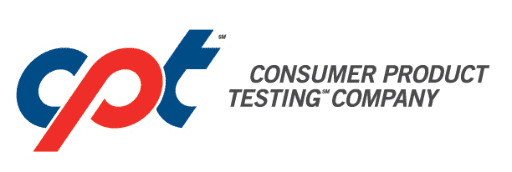What are Carbomers and why do some contain benzene?
Carbomers are a group of polymers that are widely used as inactive ingredients in drug products as fillers, emulsifiers, gelling agents, and binding agents. Some carbomers are manufactured using benzene as a polymerization solvent, whilst others employ a benzene-free manufacturing process. Benzene is a known human carcinogen. Those carbomers using benzene in the manufacturing process may contain as much as 5,000 parts per million (ppm) of benzene which could cause the drug products in which they are used to exceed the current FDA limit of NMT 2 ppm of benzene.
The carbomers manufactured using benzene are identified as Carbomer 934, Carbomer 934P, Carbomer 940, Carbomer 941, and Carbomer 1342. The carbomers manufactured using a benzene-free process are identified as Carbomer Homopolymer, Carbomer Copolymer, and Carbomer Interpolymer.
United States Pharmacopeia (USP) Monographs for Carbomers
A USP Monograph is a listing of required testing, a description of the test methods to be employed, and the specifications to be applied to the material that is the subject of that Monograph. The USP currently includes a Monograph for each of the carbomers indicated above. The current USP limit of benzene in carbomers manufactured using benzene is NMT 5,000 ppm. In contrast, the USP limit of benzene in carbomers manufactured using a benzene-free process is NMT 2 ppm. At the request of FDA, the USP had previously issued an intent to eliminate (omit) those Monographs of carbomers that are manufactured using benzene on August 1, 2025.
FDA Guidance for Industry
On December 27, 2023 FDA issued a Guidance for Industry entitled “Reformulating Drug Products That Contain Carbomers Manufactured With Benzene.” This Guidance applies to oral and topical Rx and OTC drug products. Although Guidance documents are generally intended to reflect FDA’s current thinking on a topic and contain nonbinding suggestions or recommendations, they may also contain specific requirements relating to the topic, which is the case with this particular Guidance document.
FDA Recommendations for use of Benzene-Containing Carbomers in Drug Products
- All Rx and OTC drug products that are formulated to contain Carbomer 934, Carbomer 934P, Carbomer 940, Carbomer 941 or Carbomer 1342 should be immediately reformulated so as to eliminate the use of such carbomers.
- For drug products distributed under either an approved New Drug Application (NDA) or Abbreviated New Drug Application (ANDA), FDA provides recommendations relating to various regulatory pathways which may be followed in making formulation changes and submitting them to the Agency for approval.
- For drug products distributed in compliance with an OTC Drug Monograph, FDA provides recommendations relating to the activities to be conducted in support of making formulation changes that will meet with FDA acceptance during an inspection.
FDA Requirements for use of Benzene-Containing Carbomers in Drug Products
- Carbomer 934, Carbomer 934P, Carbomer 940, Carbomer 941 and Carbomer 1342 may no longer be used in the formulation of any Rx or OTC drug product after the date that their Monographs are removed from the USP (targeted as August 1, 2025).
- Until such time as their reformulation away from benzene-containing carbomers, Rx and OTC drug product owners must determine the level of benzene in their current formulations, keeping in mind that the current FDA limit for benzene is NMT 2 ppm. Any drug product exceeding this limit will be deemed as being adulterated and subject to FDA enforcement action.
How can CPT Assist in the assessment of your current drug products and subsequent reformulation away from benzene-containing carbomers?
CPT’s Analytical Chemistry Lab is equipped with many state-of-the-art Gas Chromatographs and staffed by seasoned professionals who are experienced in testing for benzene and many other residual solvents which may be present in ingredients and products. CPT is ready to provide consulting and testing services that can assist you in determining the level of benzene in your current products, and also provide testing support in your reformulation efforts.
Why not give us a call today so that we can begin to assist with your compliance plans?

